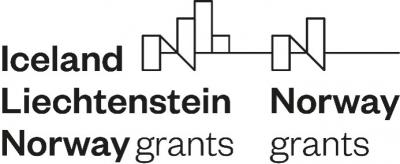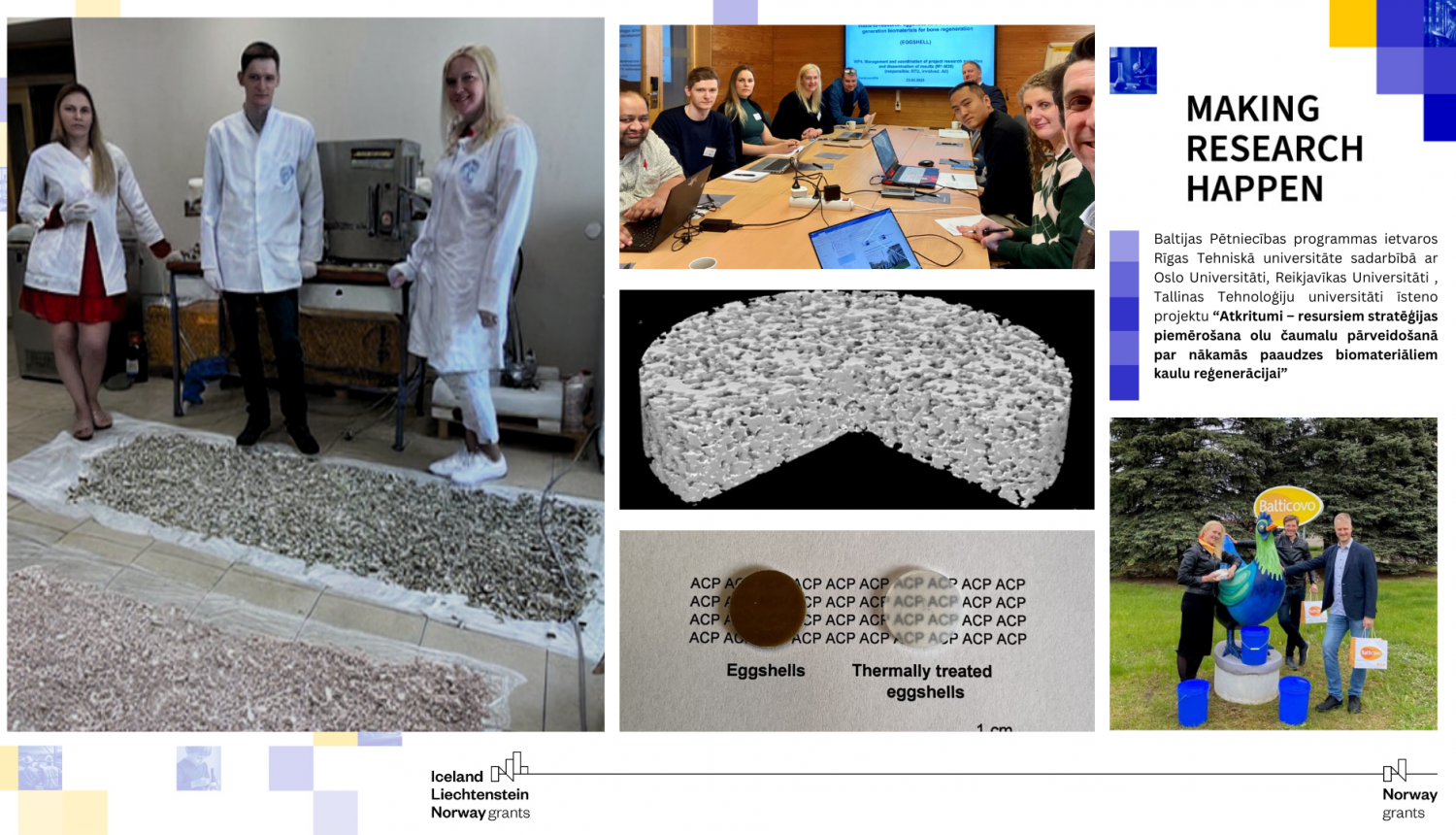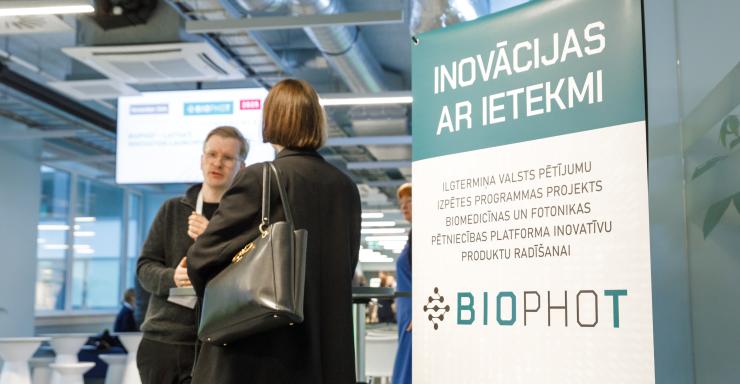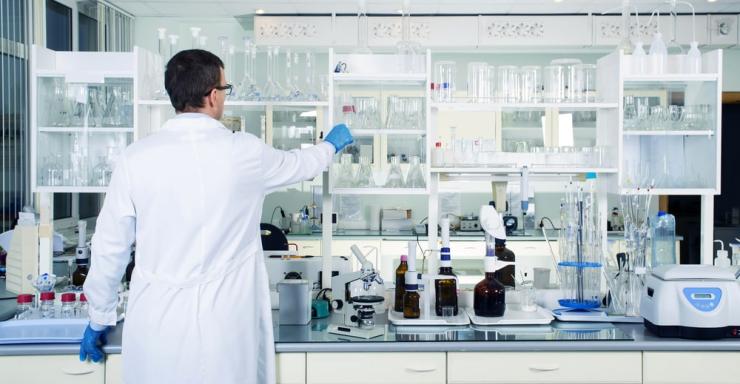Every year, tens of millions of tons of eggs are produced, of which several million tons consist of eggshells. Although eggshells are considered valueless and are mostly discarded as waste, they can serve as raw material for producing high-value-added products.
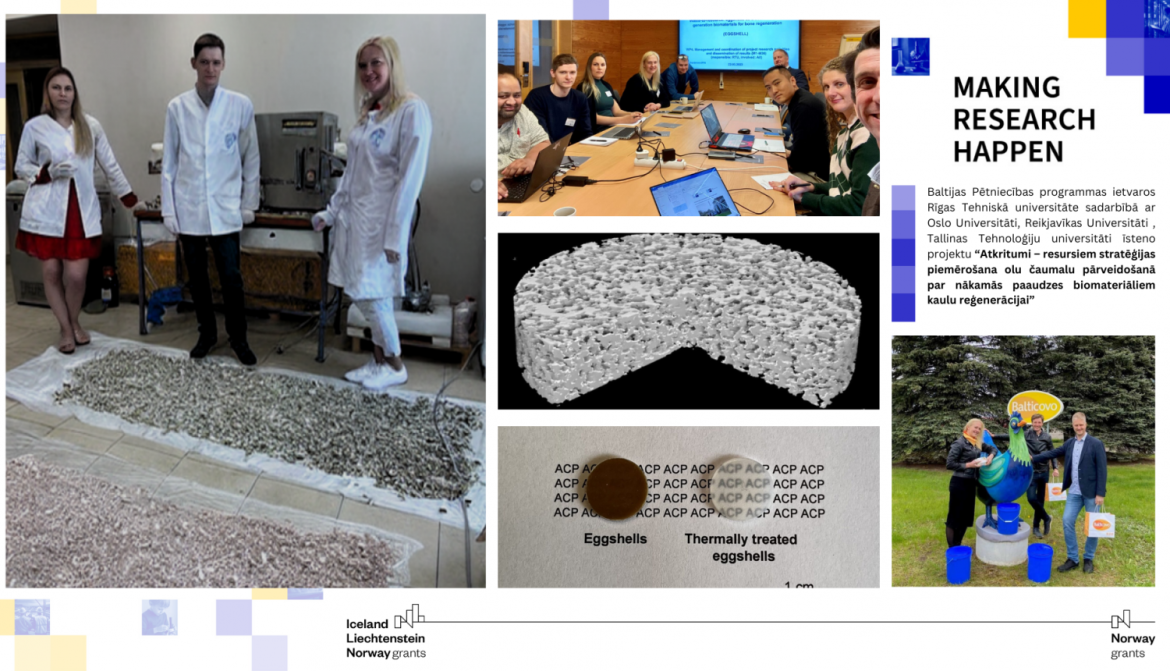
As part of the European Economic Area and Norway Grants (EEA/NO) programme "Research and Education," the project "Waste-to-Resource Strategy: Transforming Eggshells into Next-Generation Biomaterials for Bone Regeneration" is being implemented. In collaboration with scientists from Latvia, Estonia, Iceland, and Norway, a new concept is being developed for processing eggshells into biomaterials. In this project, chicken eggshells are used as raw material for synthesizing amorphous calcium phosphate, from which porous, bone-like ceramic scaffolds are produced for potential use in bone regeneration.
Amorphous calcium phosphate possesses excellent biological properties; however, due to its metastability, producing it in bulk ceramic form is particularly challenging. To fully recycle the eggshells, proteins are extracted from their membranes, which are rich in bioactive substances and exhibit antibacterial properties. These proteins are intended for coating the porous scaffolds, imparting unique properties to them.
Through process optimization, the project team successfully synthesized amorphous calcium phosphate using eggshells as a calcium source and scaled up production to obtain large quantities. The synthesized material demonstrated excellent bioactivity under in vitro conditions. Dense and porous ceramic scaffolds were fabricated from this material and are currently being tested in both in vitro and in vivo conditions. The project partners have published several scientific papers based on the findings and have prepared several joint project proposals to continue the research.
During the project's implementation, the team encountered several challenges that required innovative solutions. One challenge was related to obtaining large quantities of amorphous calcium phosphate. After optimizing the synthesis parameters, a method was developed to produce amorphous calcium phosphate in quantities exceeding several tens of grams. Additionally, the initially selected method for producing ceramic scaffolds from amorphous calcium phosphate did not yield ceramics with the desired properties. Through collaboration among project partners, an alternative method was developed to produce dense and porous amorphous calcium phosphate ceramics.
The project's results demonstrate that waste materials—eggshells—can be utilized to manufacture high-value-added products. Implementing the project allowed the partners to expand their knowledge and acquire new skills, which will be beneficial in developing new research directions and fostering collaborations. It is anticipated that the project's results will attract interest from companies specializing in biomaterials production. The developed materials could promote faster bone regeneration, thereby potentially improving patient treatment outcomes and quality of life.
_______________
The Baltic Research Programme is implemented with support from the EEA Grants under the "Research and Education" programme, administered by the Ministry of Education and Science and the Latvian Council of Science. The total programme funding is €8,676,084, with 15% co-financing from the state budget (€1,301,413) and 85% co-financing from the EEA (€7,374,671). In Latvia, the Baltic Research Programme supports 9 research projects and 5 small collaboration projects.
The project "Waste-to-Resource Strategy: Transforming Eggshells into Next-Generation Biomaterials for Bone Regeneration" is being implemented by Riga Technical University (Latvia) in collaboration with the University of Oslo (Norway), Reykjavik University (Iceland), and Tallinn University of Technology (Estonia).
